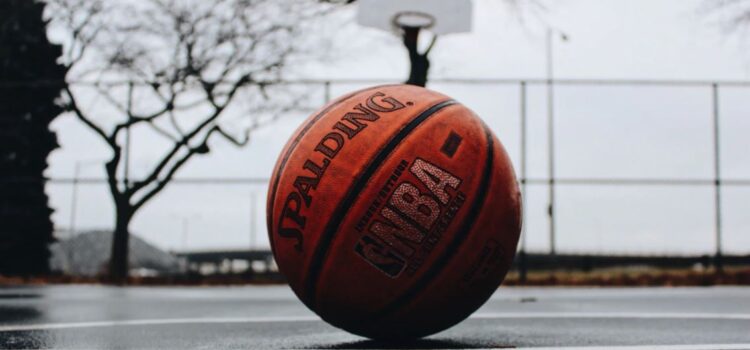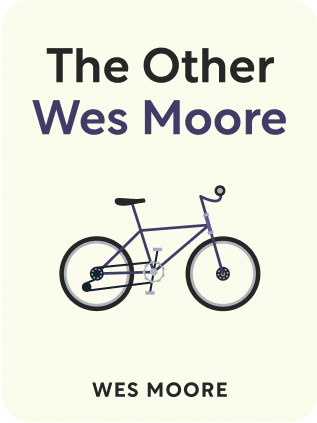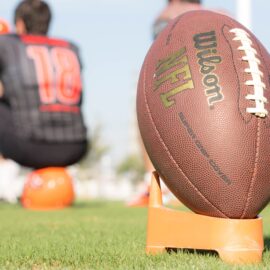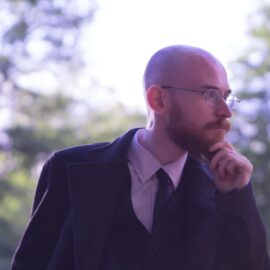

This article is an excerpt from the Shortform book guide to "The Other Wes Moore" by Wes Moore. Shortform has the world's best summaries and analyses of books you should be reading.
Like this article? Sign up for a free trial here .
How did basketball play a huge role in author Wes Moore’s life? For Rhodes Scholar Wes Moore, was basketball more important than education?
In The Other Wes Moore, basketball was Moore’s escape from life in the Bronx. He continued to play throughout high school and was on the way to the NBA when his priorities shifted.
Read on to learn about Wes Moore, basketball, and growing up in the Bronx.
Wes Moore Went From Basketball to Books
After moving in with his grandparents in the Bronx, it wasn’t long before Wes Moore found a community of friends in his new home. One day, he was granted permission to walk to the basketball courts five blocks away. He dribbled his ball, practicing his crossover dribble and savoring the time outside.
For Wes Moore, basketball was his salvation. After waiting on the sidelines, he was called in to play. He played his best, and despite not winning or succeeding against the older, bigger kids, he was opened to a new world.
Pick-up games are common in many urban environments. People, old and young, unemployed or professional, gang-affiliated or straight, came together on the neutral territory of a basketball court. Moore picked up the style and language quickly, growing in both skill and personality among this newfound brotherhood. Moore had found his tribe.
Wes Moore: Basketball at Valley Forge
Moore had been playing varsity basketball for Valley Forge since his sophomore year. He was tall and good, and colleges had started to take an interest. By Moore’s senior year, he’d become a hot prospect for college recruiters. The New York Times had even published an article about his successes and the expectations for his future. He’d been paraded around campus after campus and felt wanted. He’d always dreamed of playing in the NBA, and these visits strengthened his belief in his future professional success.
However, Moore’s mind soon started to turn in a different direction. He started to think maybe he wasn’t as good as he thought he was. He attended recruiting camps and tournaments and got a firsthand look at who his competition was. In the mid-90s, that competition meant players like Kobe Bryant.
Where Moore had to work hard on the court, the game came naturally to others. They were more agile, graceful, and talented. He had potential, but he was never going to reach the level of skill and swagger these other players had. His Uncle Howard had always told him to have a backup plan, so Moore turned his focus to becoming known for more than just “Wes Moore: basketball player”.
Changing Direction
Moore had become more academically minded throughout high school. He attributes some of this to his mother, Joy. She saw how much he loved basketball but hated reading, so she bought him Fab Five, a book that details the historic national championship runs of the Michigan basketball recruiting class from 1991 to 1993.
Moore finished the book in two days. He was riveted by their journey and hip hop swagger. Wes learned that books were a way to enter different worlds and others’ lives. He started reading everything he could, including classic and contemporary fiction he’d avoided in the past.
One book, in particular, influenced his shift in life goals. Colin Powell’s memoir, My American Journey, spoke to Moore in a way no other book had. Powell was a Bronx native, and he spoke of his struggles with discrimination and civil rights as a young man and soldier. Powell believed in the military, in which black Americans had more freedom than at home. He saw how the military helped spawn progress at a national level, and he was grateful for the way the Army helped him learn to love his country.
Powell’s book spoke to Moore’s experiences. Moore wanted to rise above the stereotypes held about young black men, especially those from urban environments. Like Powell, he also sought a path to something greater than himself. Moore wasn’t foolish enough to believe he could overcome the tenets of racism in America. But Powell had shown him a different perspective of race and opportunity, and Moore began to think about his life differently.
For Wes Moore, basketball was an escape from difficult life in the Bronx and the court was a place he could call home. However, it was not his calling in life.

———End of Preview———
Like what you just read? Read the rest of the world's best book summary and analysis of Wes Moore's "The Other Wes Moore" at Shortform .
Here's what you'll find in our full The Other Wes Moore summary :
- How two men from similar communities can have vastly different lives
- What led one Wes Moore to become a Rhodes Scholar
- What led the other Wes Moore to a life sentence






